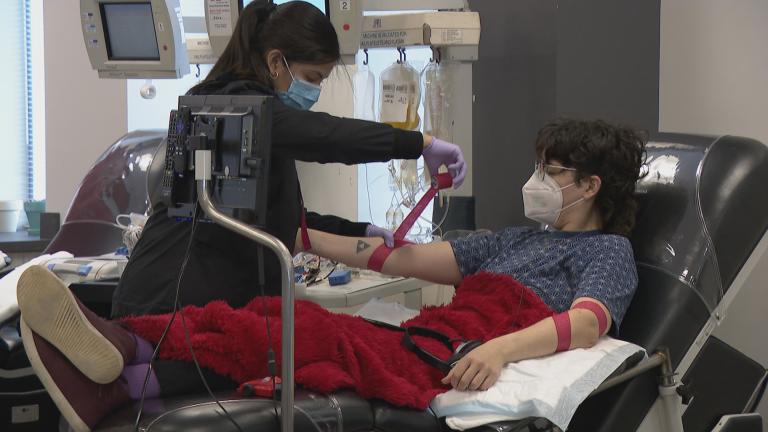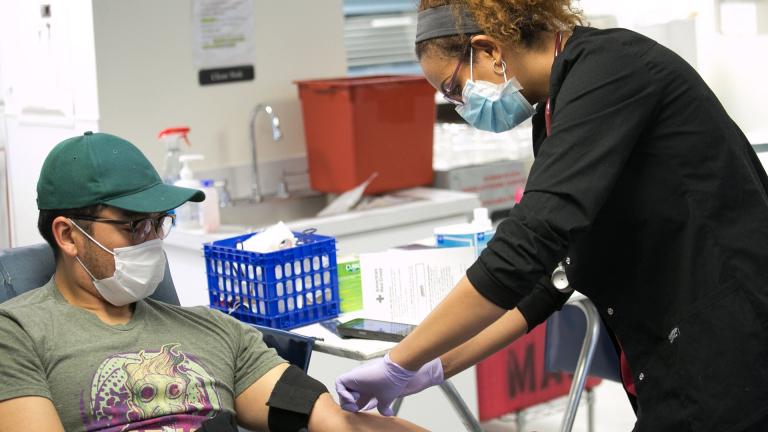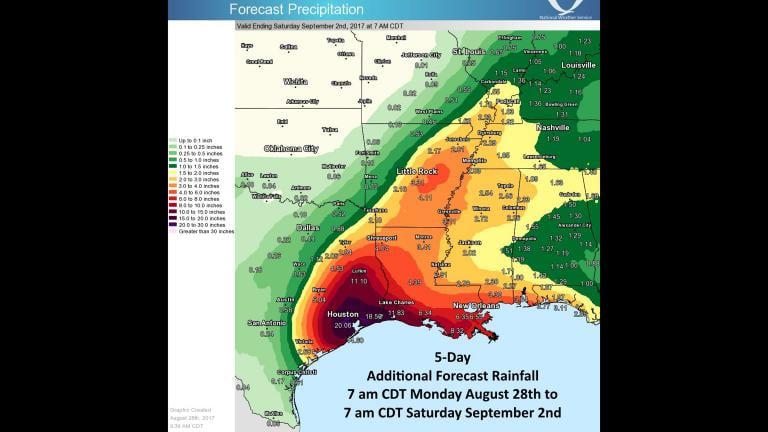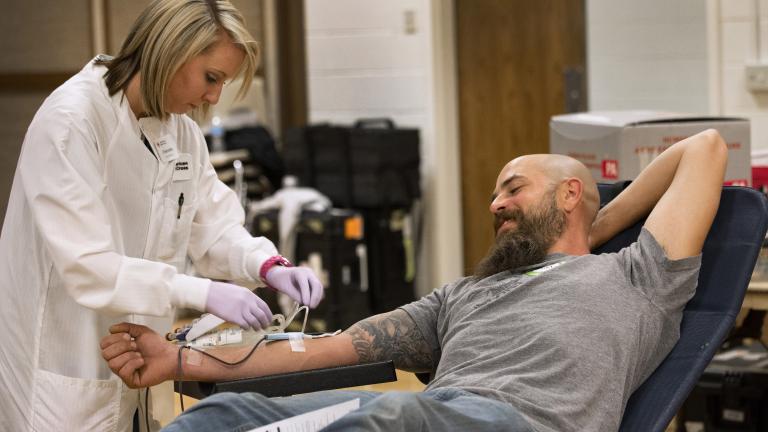The nation’s blood supply is at such low levels that the American Red Cross recently declared a nationwide emergency. The organization said the number of people donating has dropped by 40% over the last two decades.
“The drop in blood donors is likely due to the evolution in how people engage in communities where they live, learn and work,” said Joy Squier, spokesperson for the Illinois Red Cross. “COVID-19 significantly impacted blood donation in the U.S. As more people conduct their lives more remotely, the Red Cross’ ability to meet people where they are to host blood drives has become harder.”
One important source for blood donations has always been America’s schools. Up until the pandemic, about 25% of the nation’s blood drives happened at schools, with most high schools holding between one to four blood drives per year. But those blood drives have decreased dramatically since 2020.
“During the height of the pandemic, blood drives sponsored by high schools, colleges and universities — where many people make their first blood donations — were put on hold as schools went to virtual learning and pulled back or restricted on-campus activities,” Squier said. “About 260,000 donors aged 18-24 gave blood with the Red Cross in 2021 — less than half of what we saw just two years earlier in 2019.”
Another factor contributing to the blood shortage is that the overall need for blood has gone up in recent years.
“There are more organ transplants being done and more bone marrow transplants being performed,” said Dr. Glenn Ramsey, medical director of the blood bank at Northwestern Memorial Hospital. “Many patients with conditions such as cancer and sickle cell disease are living longer but often still need blood transfusions.”
“In Chicagoland someone needs a transfusion almost once a minute, so it’s important to maintain the blood supply,” Ramsey said. “There is no substitute for blood when patients need transfusions. Blood is needed in all stages of life, from premature newborns, who often need repeated transfusions, to patients in advanced cancer hospice care who need transfusions to be able to have more time with their loved ones.”







